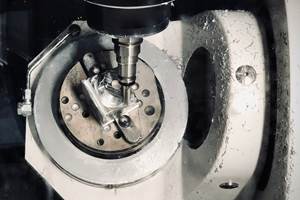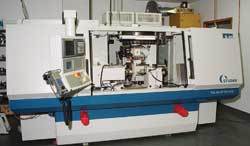Fixturing Device Simplifies Squaring
Peter Schmidt of the Hermann Schmidt Company developed a intuitive fixture for squaring blocks for the die and mold industry. The system interfaces well with components from the System 3R catalog and is capable of making a block square within millionths of an inch.
Share








ECi Software Solutions, Inc.
Featured Content
View More.png;maxWidth=45)
DMG MORI - Cincinnati
Featured Content
View More
For years, machinists have squared blocks with a solid square, a vise and a knee mill. After heat treatment, block squaring is often completed on a grinder using a trusted angle square and a C clamp. Unfortunately, shops face challenges with increased offshore competition and a lack of skilled machinists capable of accurately performing this type of work. That’s why they’ve tried to develop fixtures that make the squaring process simpler and more accurate. The problem with most of these fixturing solutions is that they are complicated and don’t yield the needed accuracies.
Peter Schmidt of Hermann Schmidt Co. has developed a solution designed to overcome these challenges and take the guesswork out of block squaring. Mr. Schmidt says the solution is easy to operate and yields accurate results using machines found in the average shop. The device, called SquareTech, is produced and sold by System 3R USA Inc. (Elk Grove Village, Illinois).
SquareTech has two primary components: a base and an indexing fixture. The base can be bolted to a mill’s T-slot table or to a flat plate for attachment to a magnetic grinding chuck. The indexing fixture has a circular profile that slides into the base. It is located and locked into the base with a precision ring around its periphery. That ring engages another ring of ball bearings located inside the base to lock precisely and rigidly regardless of the fixture’s rotation angle. The ball-bearing ring is constantly engaged via spring pressure regardless of whether the indexing fixture is present in the base or not. The indexing fixture can be removed from the base by using shop air. Air pressure applied through a control valve in the base overcomes the spring pressure. The ball bearings then recede into the base to allow the indexing fixture to spin freely.
The indexing fixture is compatible with many workpiece interfaces using components from System 3R.The SquareTech system accurately indexes parts as heavy as 200 pounds every 90 degrees. A test was recently performed at a customer site using the SquareTech system to grind a block made of D-2 tool steel. The flat grinding machine used for the test was in good condition and was located in a facility with an ambient temperature of 71° F. The part was checked with certified gages on a recently certified grade-A surface plate. In preparation for the test, the top and bottom surfaces of the block were ground parallel. The block was then attached to the indexing fixture with a standard electromagnet to provide access to the remaining four sides. Each side was ground in succession until the block had made five revolutions, with each side being ground five times. This test yielded a cube with total squareness error of less than 0.000060 inch.
Related Content
How to Determine the Currently Active Work Offset Number
Determining the currently active work offset number is practical when the program zero point is changing between workpieces in a production run.
Read MoreOrthopedic Event Discusses Manufacturing Strategies
At the seminar, representatives from multiple companies discussed strategies for making orthopedic devices accurately and efficiently.
Read MoreThe Future of High Feed Milling in Modern Manufacturing
Achieve higher metal removal rates and enhanced predictability with ISCAR’s advanced high-feed milling tools — optimized for today’s competitive global market.
Read MoreHow to Successfully Adopt Five-Axis Machining
While there are many changes to adopt when moving to five-axis, they all compliment the overall goal of better parts through less operations.
Read MoreRead Next
In It For The Long Haul
Curt Reed uses advanced grinding techniques in the pursuit of short-run, sub-micron work that other shops can’t perform or won’t attempt. His shop’s commitment to its customers is reflected in the high level of equipment sophistication and applied grinding acumen.
Read More5 Rules of Thumb for Buying CNC Machine Tools
Use these tips to carefully plan your machine tool purchases and to avoid regretting your decision later.
Read MoreRegistration Now Open for the Precision Machining Technology Show (PMTS) 2025
The precision machining industry’s premier event returns to Cleveland, OH, April 1-3.
Read More
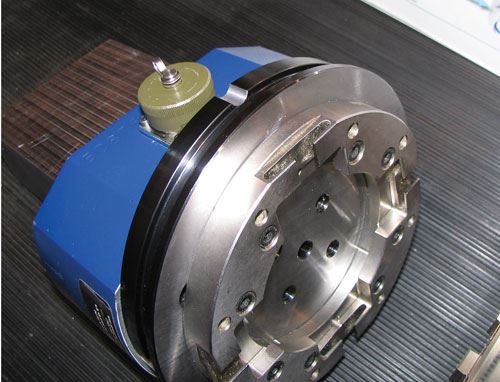
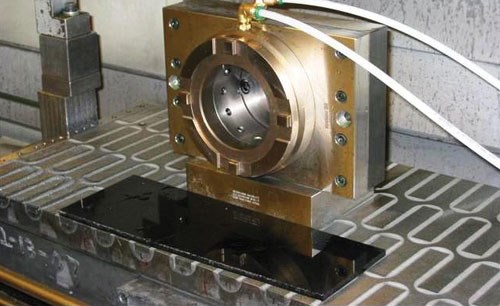
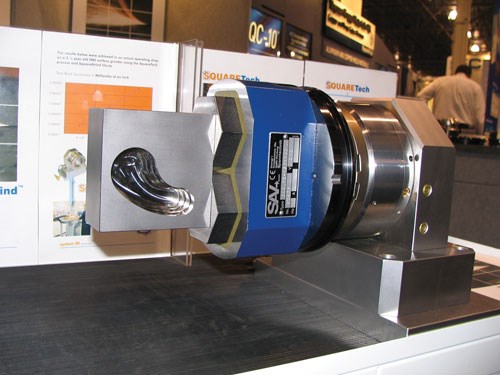


.png;maxWidth=150)




































